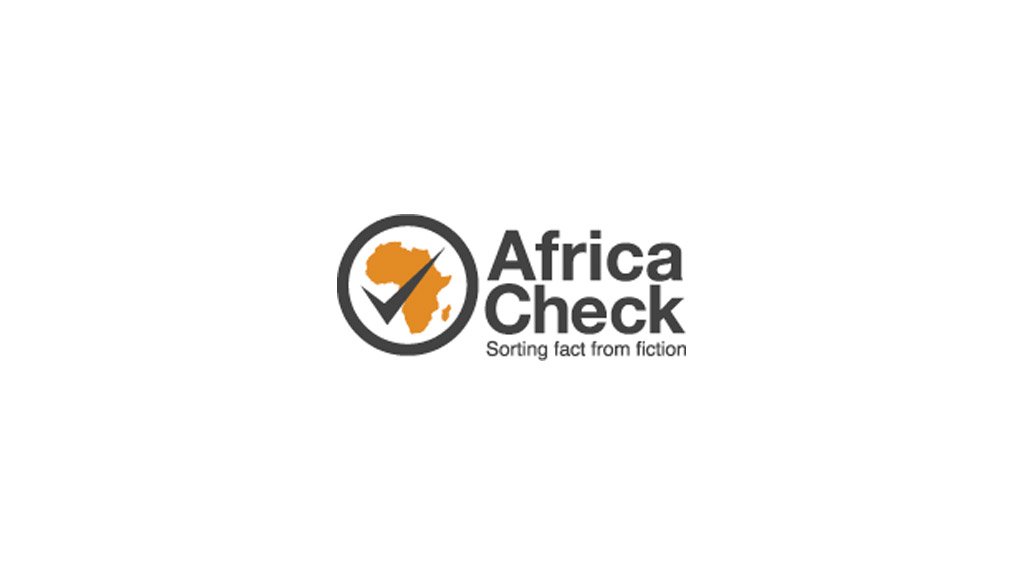In a glowing column for the Nigerian newspaper This Day, Chike Ogeah, a former Delta state commissioner, praised the health record of former governor Emmanuel Uduaghan.
Uduaghan was governor of Delta state between 2007 and 2015.
“Uduaghan’s health programmes made tremendous impact on health care delivery in Delta State & led to the remarkable fall in the infant mortality rate across the state from 545 per 100 000 births in 2007, to 241 per 100 000 in 2012, the lowest in the country,” Ogeah wrote in October 2024.
This claim was surfaced by the artificial intelligence (AI) tool that Africa Check uses to monitor public debate.
Are the columnist’s claims about a plunge in infant mortality in Delta state accurate? We checked.
Ogeah did not cite a source. Africa Check has asked him for his evidence and will update the report when we receive a response.
The infant mortality rate is the probability that a child will die before their first birthday. It is expressed as the number of deaths per 1 000 live births – not per 100 000 births as the columnist wrote. Abiola Arosanyin, a senior statistician at the National Bureau of Statistics (NBS) confirmed this.
What does the data show?
Demographic and Health Surveys (DHS) are nationally representative household surveys that collect data on population, health and nutrition. They are usually conducted every five years, mainly in developing countries, to track progress over time.
However, the 2008 Nigeria DHS, which would have covered the period specified in the column, did not include an infant mortality rate by state.
We then turned to the Multiple Indicator Cluster Surveys (MICS) conducted by Unicef, the United Nations agency for children, among others. These household surveys collect detailed data on the well-being of children and women every three to five years.
The third round of MICS in Nigeria in 2007 also didn't capture infant mortality rates by state. Nationally, it estimated infant mortality at 86 per 1 000 live births.
In general, mortality indicators require a very large sample size unlike nutrition indicators, Arosanyin told Africa Check.
“MICS always provides estimates on mortality at the national level. However, to provide a state-by-state estimate, each state in the country would need to have a robust sample size.”
The claim as made is inaccurate, but even if the columnist had used the correct indicator, there would have been no evidence for it.
The 2013 DHS in Nigeria also didn’t report infant mortality rates by state. This could have been due to inaccurate or incomplete data, according to Prof Tanimola Akande, a public health physician and epidemiologist at the University of Ilorin Teaching Hospital in Kwara state.
“Sourcing data and getting correct data for surveys and routine data collection is a big challenge in Nigeria,” he told Africa Check.
The 2011 MICS survey was released in April 2013. It was conducted by Unicef and the NBS between February and March 2011. Some 30 791 women aged 15 to 49 were interviewed, out of 146 243 household members across the country.
The survey estimated the infant mortality rate in Delta state at 72 deaths per 1 000 live births. This fell to 48 deaths per 1 000 live births in the next MICS survey, for 2016-17.
There is again no evidence for Ogeah’s claim and it is incorrect.
According to the 2011 MICS survey, Osun state had the lowest infant mortality rate at 40 deaths per 1 000 live births. This was followed by Lagos (45 deaths per 1 000 live births) and Ekiti (48 deaths per 1 000 live births).
What does the latest data show?
Released in September, the Nigeria Demographic and Health Survey 2023-24 is the country's most recent. It surveyed 39 553 women aged 15 to 49 in 40 047 households across the country.
The survey estimated Delta state’s infant mortality rate at 26 deaths per 1 000 live births. But it wasn't the state with the lowest rate. This was Ondo, at 8 deaths per 1 000 live births.
This report was written by Africa Check., a non-partisan fact-checking organisation. View the original piece on their website.











